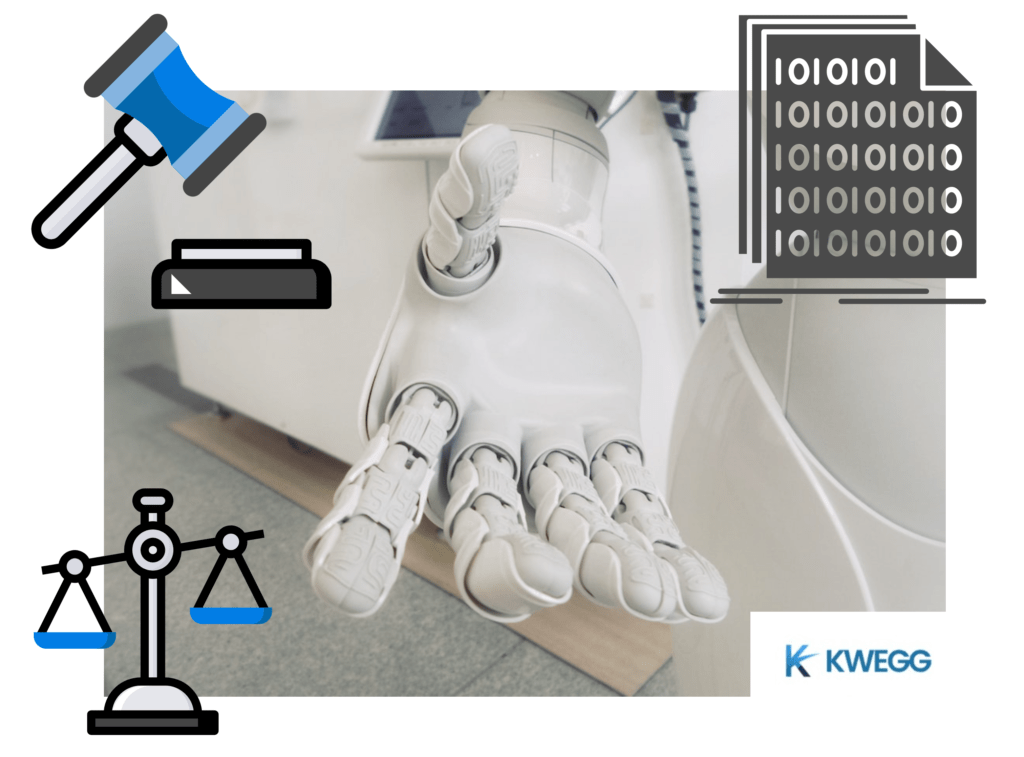
Artificial Intelligence (AI) has revolutionized the way we live, work and communicate. It has made our lives simpler, faster, and more efficient. However, as with any new technology, there are challenges that come along with it. One of the biggest challenges faced by AI is the issue of ethics. As technology continues to advance, it becomes increasingly important to ensure that it is used in an ethical & responsible manner.
At Kwegg, we understand the importance of ethical AI. Accordingly, we have implemented a set of ethical guidelines to guide our work. Our AI-powered content productivity system is designed to create high-quality content that meets the highest ethical standards. Because we believe that it is our responsibility to use AI in a way that benefits society as a whole.
Here, we will explore the topic of AI ethics in more detail, and how Kwegg has implemented ethical guidelines to ensure that our system is used in a responsible and ethical way. We will discuss the challenges faced by AI. Additionally, how we can work together to create a better future for all. So, if you’re interested in learning more about the ethics of AI and how Kwegg is making a difference, then read on!
Introduction
Artificial intelligence (AI) has the potential to revolutionize the way we live, work, and interact with the world around us. From self-driving cars to personalized healthcare, AI-powered technologies are transforming industries and improving our quality of life. However, with great power comes great responsibility, and the ethical implications of AI development cannot be ignored. Here, we will discuss the need for ethical guidelines in AI development and the challenges of AI ethics. Also, how Kwegg is addressing these issues through our guiding principles and best practices.
The Need for Ethical Guidelines in AI Development: An Overview
As AI becomes more prevalent in society, it is important to establish ethical guidelines to ensure that these technologies are developed and deployed responsibly. This includes considerations such as bias, privacy, transparency, and accountability. Without such guidelines, AI could perpetuate existing social inequalities and pose a threat to individual rights and freedoms. It is therefore imperative that we take a proactive approach to AI ethics and develop guidelines that reflect our values as a society.
The Challenges of AI Ethics: Balancing Innovation with Responsibility
One of the greatest challenges in AI ethics is striking a balance between innovation and responsibility. On the one hand, we want to encourage the development of new and innovative AI technologies that can improve our lives. On the other hand, we need to ensure that these technologies are developed and deployed in a way that is ethical and responsible. This requires a careful consideration of the potential risks and benefits of AI, as well as a commitment to transparency and accountability.
How Kwegg is Addressing AI Ethics: Our Guiding Principles and Best Practices
At Kwegg, we believe that ethical considerations should be at the forefront of AI development. That’s why we have established a set of guiding principles and best practices that inform our approach to AI content generation. These include a commitment to transparency, accountability, and user privacy. For example, we provide users with the option to edit and customize their content, and we only use data that has been explicitly provided by the user.
Ensuring Accountability and Transparency in AI-Powered Content Creation
One of the key tenets of ethical AI development is accountability and transparency. At Kwegg, we take these principles seriously and strive to ensure that our AI-powered content creation is transparent and accountable. This includes providing users with the ability to edit and customize their content. As well as implementing measures to prevent bias and protect user privacy.
Protecting User Privacy and Data Security in AI-Generated Content
Another important consideration in AI ethics is user privacy and data security. At Kwegg, we understand the importance of protecting user information & take measures to ensure that our AI-generated content is secure and private. This includes using secure servers and encryption technologies to protect user data, as well as implementing strict data access controls.
The Role of Human Oversight in Ethical AI Development and Implementation
While AI technologies have the potential to automate many tasks and streamline processes, it is important to remember that humans still play a critical role in ensuring ethical AI development and implementation. At Kwegg, we believe that human oversight is essential to ensuring that our AI-powered content creation is ethical and responsible. That’s why we have a team of experts who oversee the development and deployment of our AI technologies, and who is responsible for ensuring that our guiding principles and best practices are upheld.
Collaborating for a Better Future: The Importance of Ethical AI Partnerships
Finally, we believe that collaboration is key to advancing ethical AI development and implementation. That’s why we work closely with other AI developers and industry experts to share best practices and collaborate on ethical AI initiatives. By working together, we can help ensure that AI technologies are developed and deployed in a way that is responsible, transparent, and accountable.
Conclusion: Embracing AI Ethics for a More Responsible & Sustainable Future
AI technologies have the potential to transform our world for the better, but they also present significant ethical challenges. Kwegg is committed to addressing these challenges through our guiding principles and best practices. Which prioritize transparency, accountability, and user privacy. We believe that by embracing AI ethics, we can help create a more responsible and sustainable future. Where AI-powered technologies are developed and deployed in a way that reflects our values as a society.
Why do we need to deal with ethical challenges & how Kwegg is adhering to them.